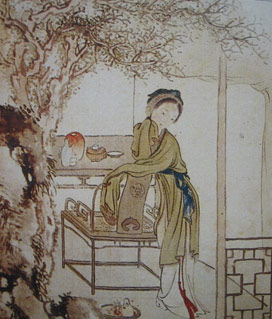- Messages
- 8,625
- Reaction score
- 7,328
- # of dives
- 2500 - 4999
How are the Chinese divers building foundations for the bridges from their place to ours
communicating
and are they happy
communicating
and are they happy
Welcome to ScubaBoard, the world's largest scuba diving community. Registration is not required to read the forums, but we encourage you to join. Joining has its benefits and enables you to participate in the discussions.
Benefits of registering include
LOL.Classical Chinese is very different from vernacular Chinese. Read the book I referenced and you will begin to understand just how different Classical Chinese is.
You are at liberty to maintain your ignorant beliefs. I’m not going to waste any more time with you.

Traditional and simplified scripts replaced classical script when written Chinese transitioned from Classical Chinese to vernacular Chinese in the middle of the 20th Century.


额?听说你比我懂得西藏?你确定?WTF?You ought to visit Tibet and see how many Tibetan with self-respect will call themselves chinese!!!!
Apologizing, I stopped replying to messages.Enough. Take this spat elsewhere.
LOL.
Hate to repeat myself again and again!! I have to study a lot of Classical Chinese literatures at school!!!

EDITORIAL: Classical Chinese a hindrance - Taipei Times
Bringing Taiwan to the World and the World to Taiwanwww.taipeitimes.com
Are you originated from Republic of China?
How much Classical literatures written in Classic Chinese had you ever read?Now go away and read the book that I referenced earlier and you will find out exactly how ignorant of classical Chinese you are currently.
